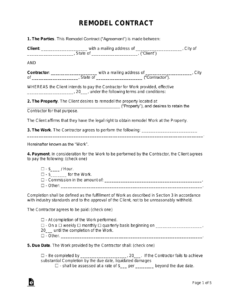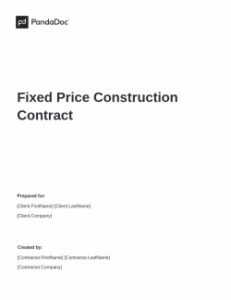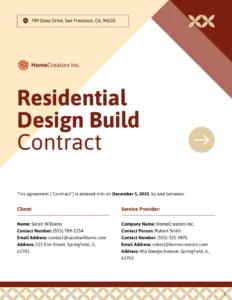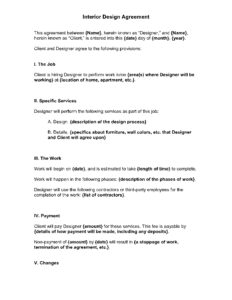Embarking on any significant construction project, whether it is building a new commercial complex or undertaking a large-scale renovation, involves a multitude of moving parts, financial considerations, and inherent risks. For project owners, one of the biggest concerns is often cost overruns, which can derail budgets and timelines, turning an exciting venture into a financial headache. This is precisely where a well-structured Guaranteed Maximum Price (GMP) contract steps in, offering a robust framework for managing financial expectations and providing a crucial layer of protection.
A GMP contract establishes a ceiling on the total cost an owner will pay for a project, irrespective of unforeseen expenses that might arise during construction. This mechanism shifts a significant portion of the cost risk from the owner to the contractor, ensuring greater financial predictability. However, the effectiveness of such a contract hinges entirely on its clarity, comprehensiveness, and the precise definition of its terms. This is why having access to a reliable guaranteed maximum price contract template is not just convenient, but absolutely essential for successful project execution and risk mitigation.
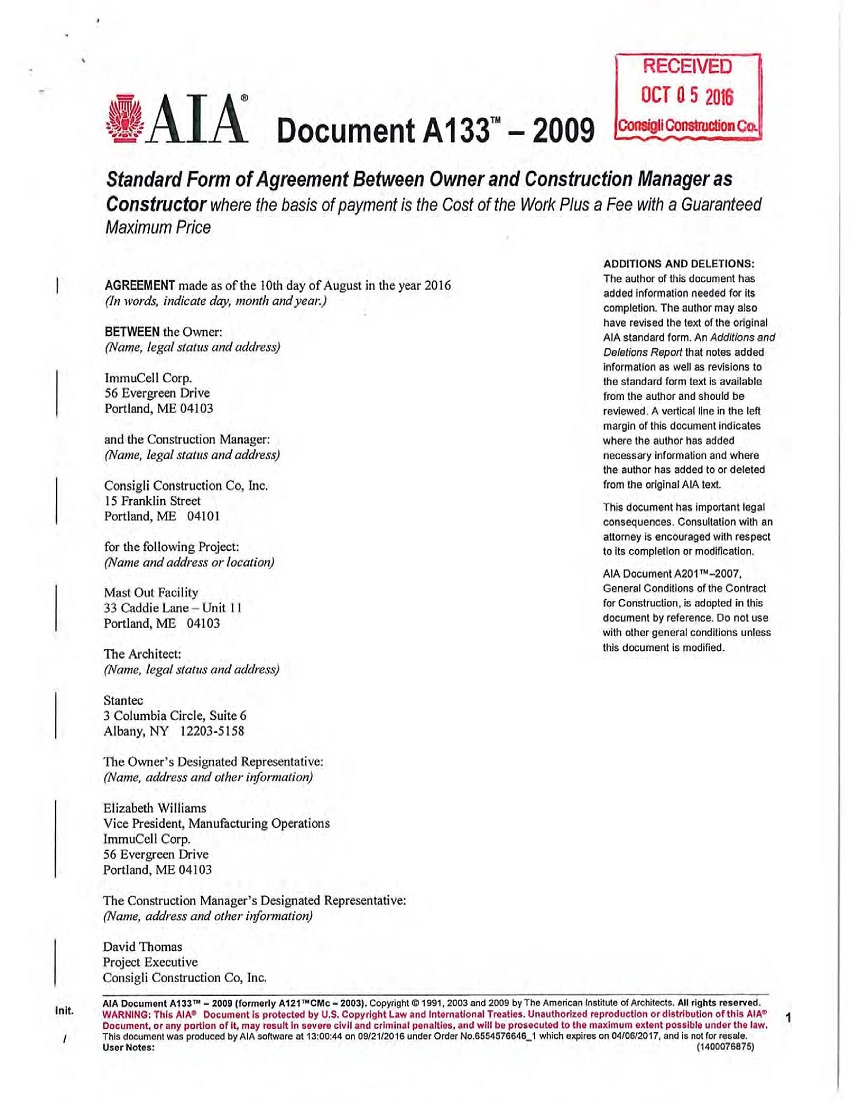
Understanding the Guaranteed Maximum Price (GMP) Contract
A Guaranteed Maximum Price contract is a contractual agreement between an owner and a contractor where the contractor agrees to complete a project for a specific maximum price. If the project costs exceed this agreed-upon maximum, the contractor is responsible for the overage, provided the scope of work has not changed. Conversely, if the project is completed for less than the guaranteed maximum price, the savings are often shared between the owner and the contractor, or sometimes entirely returned to the owner, depending on the specific terms negotiated. This structure offers a powerful incentive for the contractor to manage costs efficiently and complete the project on time.
For project owners, the primary benefit of a GMP contract is the significant reduction in financial risk. It provides a clear budget ceiling, allowing for more accurate financial planning and peace of mind. Owners can proceed with their projects knowing that they are protected from unexpected increases in labor, materials, or subcontractor costs. This cost certainty is invaluable, especially in complex or long-duration projects where market fluctuations or unforeseen site conditions could otherwise lead to spiraling expenses.
Contractors, while assuming more risk, also find advantages in GMP agreements. The potential for shared savings provides a strong motivator to innovate and implement cost-effective solutions. Furthermore, a well-defined GMP contract fosters a collaborative environment, as both parties are aligned in their goal of completing the project efficiently and within budget. This cooperative spirit can lead to smoother operations, fewer disputes, and a more positive overall project experience for everyone involved.
However, the devil is often in the details when it comes to GMP contracts. It is not enough to simply agree on a number. The contract must meticulously define what is included in that maximum price, what constitutes an allowable change, and how contingencies will be managed. Without these specifics, the “guarantee” can become vague, leading to potential disagreements down the line. A robust framework like a guaranteed maximum price contract template ensures all these crucial elements are considered and properly documented.
Key Components of a GMP Contract
Why a Solid Guaranteed Maximum Price Contract Template is Indispensable
Navigating the intricate landscape of construction projects demands not only expertise but also an unwavering commitment to clarity and precision in all contractual agreements. Even the most straightforward projects can encounter unexpected challenges, and without a well-defined contract, these challenges can quickly escalate into costly disputes and delays. This is where a robust guaranteed maximum price contract template becomes an invaluable asset, serving as the bedrock for a successful and harmonious project.
Firstly, utilizing a comprehensive template significantly streamlines the contract drafting process. Instead of starting from scratch, which can be time-consuming and prone to omissions, a template provides a pre-structured framework encompassing all the essential legal and commercial clauses. This not only saves significant time but also reduces the legal fees associated with extensive document preparation, allowing both parties to focus on the project itself rather than getting bogged down in administrative overhead.
Moreover, a thoroughly developed template acts as a powerful risk mitigation tool. It ensures that all critical aspects, such as scope definitions, payment schedules, change order procedures, and dispute resolution mechanisms, are addressed upfront. By systematically including these provisions, potential ambiguities are minimized, thereby preventing misunderstandings and future conflicts that could otherwise jeopardize the project’s progress and financial viability. It helps both owners and contractors understand their rights and obligations clearly from the outset.
Finally, a well-crafted template offers the flexibility needed to adapt to unique project requirements while maintaining a foundation of legal soundness. While it provides a standard structure, it should also be designed to be customizable, allowing for specific project details, nuances, and negotiated terms to be seamlessly integrated. This adaptability ensures that the contract remains relevant and effective for a wide range of construction ventures, providing a professional and consistent approach to contract management every time.
Successfully completing a construction project within budget and on schedule often boils down to proactive planning and robust contractual agreements. A clear understanding of financial limits and responsibilities is paramount for all parties involved, fostering an environment of trust and mutual accountability.
Leveraging a meticulously designed contract framework offers a distinct advantage, ensuring that every crucial detail is considered and documented. This foresight not only safeguards financial interests but also paves the way for smoother operations and stronger relationships among project stakeholders, ultimately contributing to the successful realization of project goals.
